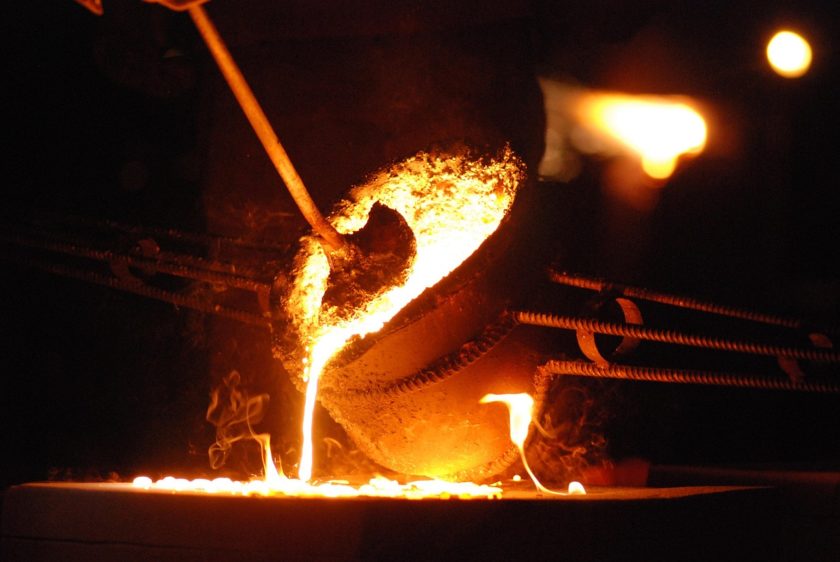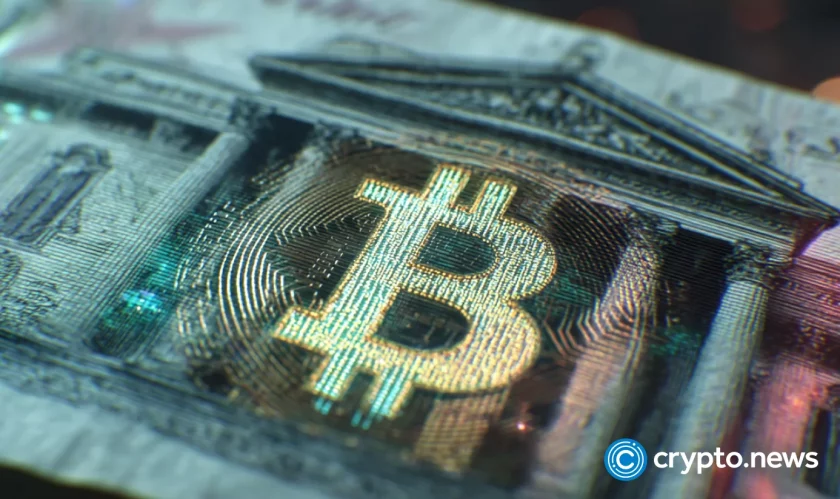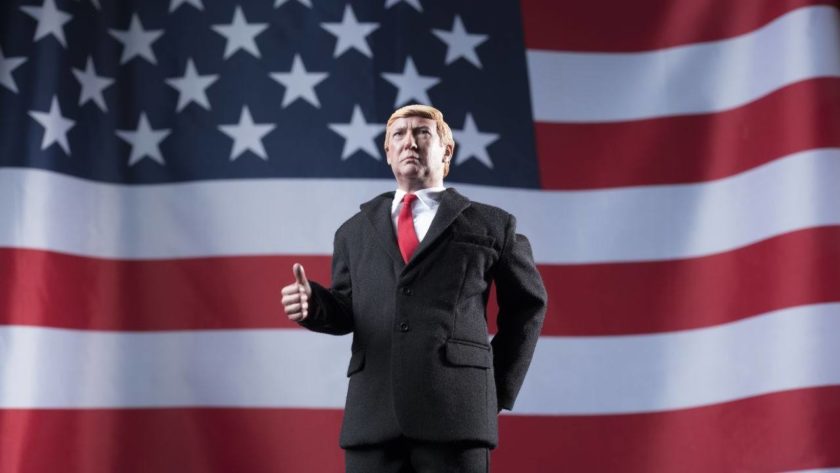Filipe Castro is a long-time Bitcoin fanatic that decided to run with a dream, founding leading crypto startup UTRUST alongside a partner. At Token2049, NewsBTC got a chance to sit down with Filipe to discuss a number of subjects, including his thoughts on adoption, a possible bottom in the value of cryptocurrencies, and how his firm is moving towards becoming the PayPal of this industry.
There’s A Bitcoin Downturn, But How Are Fundamentals?
NewsBTC: All right. So, NewsBTC editor Joseph Young argues that by many measures, this crypto winter has exceeded expectations. You have Fidelity’s Bitcoin custody coming out, Starbucks potentially looking into accepting BTC, and all the infrastructure plays that are looking to bolster public awareness. Do you think that this bear market is better than the last?
Filipe: A lot more is being developed right now than in any of the previous bear markets, that’s for sure. Especially in terms of infrastructure projects towards mainstream adoption. We’re much further ahead in this winter than the last. Unfortunately, that has not been reflected in the price. This being despite many companies including ourselves actively working on infrastructures. But this technology benefits adoption in the long-term. And in the short-term, it impacts the speed and reliability of networks. Then again, this hasn’t been translated to price action. This part is very puzzling to me. From an outside perspective, I look at this market and say that there’s never been a better opportunity to jump in. You might say, ‘maybe we haven’t reached the bottom’. I don’t know. But, from a macro perspective, I would say yes, we are at that pivotal moment. Or at least we are near that moment.
I think many investors were worried about a full-fledged crypto bear market because developer activity, market interest, and the rate of building [infra] often drop massively.
This bear market, so far, has exceeded expectations. Companies are building and expanding very rapidly.
— Joseph Young (@iamjosephyoung) March 12, 2019
NewsBTC: What do you think of the recent news about Starbucks potentially accepting Bitcoin within the next 12 months? Or Kroger, an American retail brand, looking into the Lightning Network?
Filipe: I think it’s entirely possible. Again, there are clear advantages in digital currencies as a means of payment. All the tech giants are probably exploring it. I don’t know about other initiatives that aren’t public. But, they’re certainly exploring those possibilities. We have speculation about Facebook Coin or other coins associated with other ecosystems. There are clear advantages in tokenization. So in the next 10 to 15 years, you will pay for your Starbucks latte with crypto. I don’t know which digital currency you will use, but you will have the option of this being with crypto. That’s where we are headed — higher. We want more options for consumers, more ways to attract a younger audience, and better mediums to connect and reach more consumers, especially in ways where there are less intermediaries and chargebacks. So there’s a cost saving there too. It’s a win-win for both the customer and business.
NewsBTC: Stepping back a bit, what exactly got you into crypto?
Filipe: So here’s a funny story. My co-founder and I actually first met online. Back in 2012, we went to the same forums, but we didn’t know each other. We only knew each other by a nickname. So, we ended up meeting during a conference in mid-2017, and we found out we knew each other. And that’s where we recognized this problem in the industry, leading to the creation of UTRUST. So that was an odd thing having someone you’ve been talking to for years join you in the creation of a company. BitcoinTalk was a good place in the old days to build relationships. Now, the only place where you can build such things is at conferences like this.
NewsBTC: You mentioned earlier that you think we are nearing a bottom. How do you expect for the Bitcoin price to play out over the next year? Do you think the halving will push the market higher?
Filipe: Again, I’m not sure about future prices. I think it’s analogous to the stock market, where no one can fully predict the S&P 500, for instance. By the same token, no one can forecast the future of the price of gold. But, I think that Bitcoin has very similar financial attributes as a commodity to gold. So from a practical standpoint, I think we will go up. But this could be over the next year, two years, or five years. Regardless, my conviction is that we are going to surpass the previous all-time highs in a five to ten-year horizon. Again, it may not be this year. But looking at fundamentals, we are going there.
Maybe it will trade sideways for the next six months and then have a large bump. Maybe next week there will be a huge bump. But you can never anticipate that type of price action. Over the last few months, the technical developments and fundamental developments should have increased the value of cryptocurrencies. But it didn’t. Maybe there’s something preventing that. Maybe there’s something creating an artificially low price of entry. But again, if you look at fundamentals, every single indicator could signal lower prices.
Becoming The PayPal of Crypto
NewsBTC: Months ago, Litecoin creator Charlie Lee argued that the crash in the Bitcoin price has helped him build in this downturn. How has UTRUST been affected by the downturn, if at all? And, do you think that this crypto winter has been beneficial for you guys or not?
Filipe: It hasn’t been beneficial to anyone in the industry, companies and investors alike. But there have been side benefits from the overall winter, in that it washed away and continues to wash away many of the not so reputable projects. And that ended up clearing a bit of the market. In terms of UTRUST, no. Our business model is independent of the price of any token. From our token, UTK, yes. All tokens are price related in some way to the price of Bitcoin. But for most other points, like our main business model and drive, no. Not at all.
NewsBTC: How has Switzerland been treating you? Has it been a nice environment from a regulatory standpoint?
Filipe: Yes, it has. I only have good things to say about Switzerland. It has been at the forefront of the regulatory environment, not only for ICOs but for tokens in general. Even for tokens being used beyond utility, security, and also payments. Its framework, along with the regulators themselves, is very open, even if things are not very clear or understood. They are very proactive and take a friendly approach with newcomers and startups. You can do things here that would require active enforcement in other regions. But with Swiss regulators, they are rather approachable. There are clear guidelines on what you can and cannot do, making it much easier to start a business here. I think that the clarity that Switzerland shows should be emulated in other regions. Singapore, too, is also very, very good in terms of a regulatory framework. But in the end, Switzerland has been at the forefront.
Filipe Castro
NewsBTC: I know you guys are trying to become the PayPal of crypto. How has that been going?
Filipe: So yes, we’re working on that for sure. On the merchant side, it’s a bit complex. But, us being the Paypal of crypto is a fair analogy. Our business is quite similar to that of PayPal. We want to work with lots of people and many chains to add them to our platform and ecosystem. We aren’t fully decentralized. We link different chains through open-source components that act like different fiat currencies. And we are working with merchants to bolster mass adoption. Because right now, there aren’t many outlets where I can spend crypto. But we’re working on it. This is complicated though, as we are working with a very traditional, risk-averse ecosystem.
A lot of the crypto terminology here has been scaring them. These are businesses that act on predictable revenues. They want stability, meaning that they don’t want to understand a lot of these new ecosystems — a new financial world. And so there’s a lot of evangelization work, not only on the tech side, but creating good relationships so they can trust us, crypto, and the broader ecosystem.
To establish a relationship with merchants, we have to say that ‘hey guys, if you add multiple cryptocurrencies, business will be as usual. You will receive your U.S. dollars, Euros, etc. just like with your current system, but you will have access to a wider pool of customers.’ So it totally makes sense from a business standpoint. But they’re still very risk-averse about directly accepting cryptocurrencies. So merchants trying to directly accept BTC or another cryptocurrency has historically failed spectacularly. So what they want is a provider that can deal with the complexities of current and future chains. They want a provider that can cash crypto out into their bank account. And they want a provider that can deal with the technicalities of everything on the other side. They want to say, ‘you guys deal with it’. It’s as simple as that.
NewsBTC: So do you have anything in the pipes that you can tell us about?
Filipe: A lot of exciting things actually. Just recently, we completed our accelerator program in one of the top VCs in San Francisco – 500 Startups. We did a demo day presenting to run 700 investors in the valley. We are preparing to launch our platform, but I can’t give you a specific date. We are really close to launching a platform though. So stay tuned.
One of the keys to drive adoption and prices is leveraging partnerships to boost the ecosystem. A healthy market needs usability, in that price speculation and prices alone done mean success. With traditional finance, you have stocks, derivatives and all of that, but you also have payments, like cross-border transactions with fiat. And we need that. I think that as a community and as an ecosystem, we have been focusing a bit too much on the bumps in prices instead of the use cases that will drive massive adoption. But this network effect will actually power the price side too, ensuring that the next bump will be even higher than the previous one. This, of course, is in my humble opinion.
Featured Image from Shutterstock




